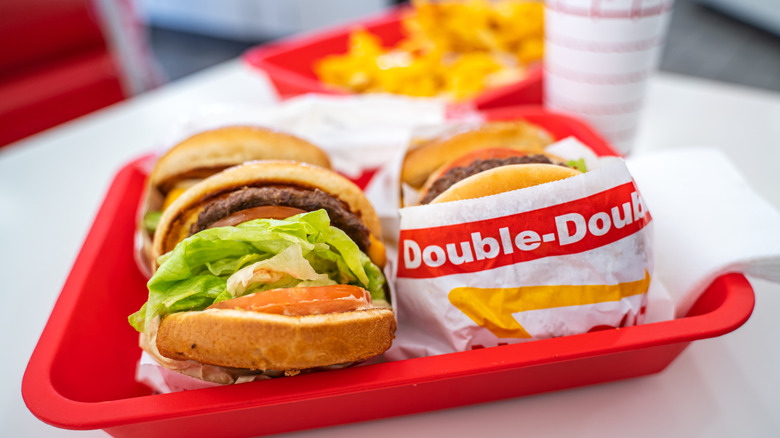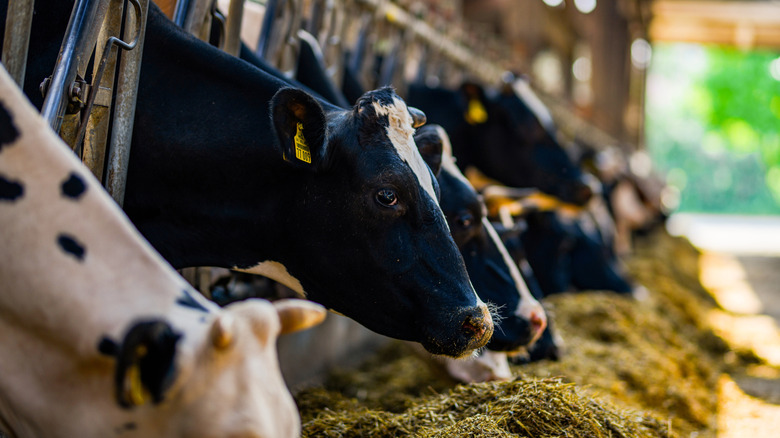Why Some People Have A Problem With In-N-Out's Meat Sourcing
In-N-Out Burger prides itself on its high-quality, never-frozen, and always handmade patties — but, unfortunately, the company's meat-sourcing practices have triggered various scandals over the years. This has led to some customers refusing to eat at the famous chain until it improves the situation. In 2012, an animal rights group secretly filmed inside one of In-N-Out's beef suppliers, the Central Valley Meat Company Co. The video made the news, with the USDA saying it contained evidence of "egregious, inhumane handling and treatment of livestock." In response, In-N-Out canceled its contract with the supplier and the chief operations officer released a statement saying the company was unaware of the conditions and would never condone the inhumane treatment of animals.
A few years later, in 2016, In-N-Out was targeted by environmental activists because it was working with suppliers that fed their animals a routine diet of antibiotics. The company responded by saying it planned to "accelerate" progress toward antibiotic alternatives, but it did not give any kind of timeline or make concrete promises. A couple of years later, the lack of progress was highlighted by a report that graded various restaurants based on their antibiotic use policies and meat-sourcing practices. In-N-Out Burger (along with another 22 of the 25 restaurants investigated) received a failing F grade because its beef still comes from animals raised with antibiotics, and it doesn't have a concrete time frame for moving away from antibiotics.
The problem with feeding antibiotics to livestock
If you're wondering what's so bad about feeding antibiotics to livestock, the answer might surprise you. The first shock is the sheer number of antibiotics livestock like cows consume — it is thought that nearly 75% of the world's antibiotics are used on animals instead of humans. Rather than prescribing them to sick animals, farmers feed antibiotics to their livestock regularly to prevent illness and infection. This allows factory farms to keep livestock in bad conditions without having to worry about diseases and infections from wounds ruining the meat. Antibiotics are also used to promote growth, so farmers can maximize the profit per animal.
Because livestock are exposed to so many antibiotics, it speeds up the emergence of antibiotic-resistant bacteria in the animals. These resistant bacteria spread through animal products and contaminated soil and water, and people then become exposed to them. This can cause mild to severe illnesses in humans, and the crux of the problem is that we can no longer use antibiotics to treat them. The World Health Organization estimates that in 2019, illnesses caused by antibiotic-resistant bacteria were directly responsible for 1.27 million global deaths and contributed to a further 4.95 million deaths. Because In-N-Out and other fast food chains sell so much meat, it is important for them to develop responsible meat-sourcing practices that contribute to the reduction of antibiotic use and help combat this problem (like Shake Shack is).

